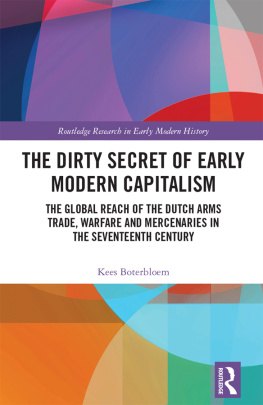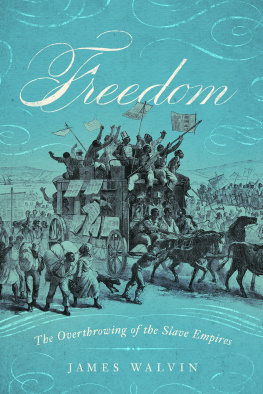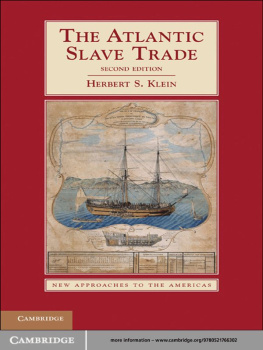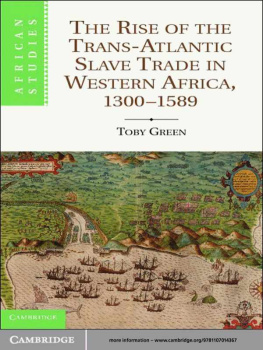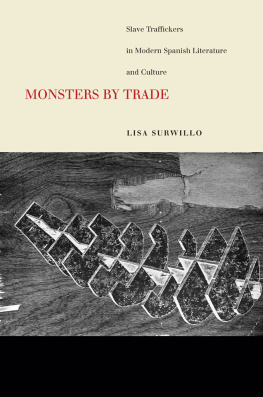Genoese Entrepreneurship and the Asiento Slave Trade, 16501700
This book explains how Genoese entrepreneurs transformed the structures of global trade during the second half of the 17th century. The author reconstructs the business network built by the Genoese merchant Domenico Grillo between the 1650s and the 1680s. Grillos business interests stretched from the Mediterranean to Pacific South America, traversing and joining the Spanish, Dutch, and English Atlantics. He and his associates created a new business model that was to be emulated by Dutch, French, and English traders in subsequent decades: the monopolistic asientos for the exploitation of the trans-imperial and intra-American slave trade to Spanish America. Offering a connected history of capitalism across trans-continental geographies and different empires, this book challenges established views of a period which has traditionally been interrogated from a northern European mercantile perspective. Cutting across the histories of the slave trade in the Atlantic world, early modern capitalism, and early modern empire, this study has much to offer to students and scholars interested in the agents, economic practices, and geographies of trade that do not easily fit into and therefore disrupt the traditional narratives of the Rise of the West.
Alejandro Garca-Montn is a Juan de la Cierva-Incorporacin fellow at the Universidad Pablo de Olavide, Spain.
Early Modern Iberian History in Global Contexts: Connexions
Series Editors: Harald E. Braun (University of Liverpool) and Pedro Cardim (Universidade Nova de Lisboa)
Early Modern Iberian History in Global Contexts: Connexions features studies that address Iberian societies and cultures from a variety of standpoints and theoretical perspectives. It understands Iberian history as a plural way of approaching an ensemble of individuals and groups made up of similarities, connections, contrasts and colliding trajectories. Its aim is to connect the different national and transnational research traditions in the field of Iberian historical studies, and showcase the multifaceted character of the Iberian past, encompassing its many voices as well as the tensions, the violence and the conflicts that opposed its various components, both across the Iberian Peninsula and across the globe.
Editorial Board: Antonio lvarez Ossorio Alvario (Universidad Autnoma de Madrid/MIAS), ngela Barreto Xavier (Universidade de Lisboa), Fernando Bouza lvarez (Universidad Complutense de Madrid), Arndt Brendecke (Ludwig-Maximilians-Universitt Mnchen), Bruno Feitler (Universidade Federal de So Paulo), Roquinaldo Ferreira (University of Pennsylvania), Mercedes Garca-Arenal Rodrguez (CSIC), Xavier Gil Pujol (Universitat de Barcelona), Claire Gilbert (Saint Louis University), Regina Grafe (European University Institute), Manuel Herrero Snchez (Universidad Pablo de Olavide), Tamar Herzog (Harvard University), Richard Kagan (Johns Hopkins University), Giuseppe Marcocci (University of Oxford), Amlia Polnia (Universidade do Porto), Maria M. Portuondo (Johns Hopkins University), Jean-Frdric Schaub (EHESS), Mafalda Soares da Cunha (Universidade de vora), Mara Jos Vega (Universidad Autnoma de Barcelona), Bartolom Yun-Casalilla (Universidad Pablo de Olavide)
- Genoese Entrepreneurship and the Asiento Slave Trade, 16501700
- Alejandro Garca-Montn
For more information about this series, please visit: https://www.routledge.com/Early-Modern-Iberian-History-in-Global-Contexts/book-series/EMIHIGC
First published 2022
by Routledge
605 Third Avenue, New York, NY 10158
and by Routledge
2 Park Square, Milton Park, Abingdon, Oxon, OX14 4RN
Routledge is an imprint of the Taylor & Francis Group, an informa business
2022 Alejandro Garca-Montn
The right of Alejandro Garca-Montn to be identified as author of this work has been asserted in accordance with sections 77 and 78 of the Copyright, Designs and Patents Act 1988.
With the exception of Chapter 6, no part of this book may be reprinted or reproduced or utilised in any form or by any electronic, mechanical, or other means, now known or hereafter invented, including photocopying and recording, or in any information storage or retrieval system, without permission in writing from the publishers.
Chapter 6 of this book is available for free in PDF format as Open Access from the individual product page at www.routledge.com. It has been made available under a Creative Commons Attribution-Non Commercial-No Derivatives 4.0 license.
Trademark notice: Product or corporate names may be trademarks or registered trademarks, and are used only for identification and explanation without intent to infringe.
Library of Congress Cataloging-in-Publication Data
Names: Garca-Montn, Alejandro, 1984 author.
Title: Genoese entrepreneurship and the asiento slave trade, 16501700 / Alejandro Garca-Montn.
Description: New York, NY : Routledge, 2022. |
Series: Early modern Iberian history in global contexts : connexions | Includes bibliographical references and index.
Identifiers: LCCN 2021034118 (print) | LCCN 2021034119 (ebook) | ISBN 9781032150345 (hardback) | ISBN 9781032150369 (paperback) | ISBN 9781003242215 (ebook) | ISBN 9781000513608 (adobe pdf) | ISBN 9781000513639 (epub)
Subjects: LCSH: Grillo, Domingo, active 16631674. | MerchantsItalyGenoaHistory17th century. | Slave tradeSpainColoniesAmericaHistory. | Genoa (Italy)CommerceHistory17th century. | Genoa (Italy)History, Naval17th century.
Classification: LCC HF3590.G4 G37 2022 (print) | LCC HF3590.G4 (ebook) | DDC 382.0945/1821dc23
LC record available at https://lccn.loc.gov/2021034118
LC ebook record available at https://lccn.loc.gov/2021034119
ISBN: 978-1-032-15034-5 (hbk)
ISBN: 978-1-032-15036-9 (pbk)
ISBN: 978-1-003-24221-5 (ebk)
DOI: 10.4324/9781003242215
Typeset in Sabon
by codeMantra
Introduction
DOI: 10.4324/9781003242215-1
Now it is well known to all, who are not quite ignorant of the course of Trade and Merchandise, that the Traffick of Europe hath been engrossed into the hands, and carried on all along by the Venetians, Genoese, Portugalls, Easterlings, Hollanders, and English; all which I shall briefly run through, and show how the failure and decay of One, was the original rise to Another, till the whole at present is divided between the Hollanders and us.
John Smith, Englands improvement revivd, 1673
From the perspective of a 21st-century historian, the staying power of John Smiths arguments is striking. Ordinary English commentators like Smith saw the European business arena of the second half of the 17th century as a chess tournament. The final match, no doubt, was a game played by two empires and their merchants, that at present is divided between the Hollanders and us, the English. The contenders had secured a place in the final after overcoming several old champions. As Smith reminded his audience, until that moment the traffick of Europe hath been engrossed into the hands, and carried on all along by the Venetians, Genoese, Portugalls, Easterling. But now, things were different, and it was not so difficult to explain why: the failure and decay of One, was the original rise to Another. Until now, historians have predominantly followed this teleological, diachronic, north-European-centred perspective to explain the pace of mercantile transformations and genealogies of empire during the early modern period. This book invites the reader to look at the decades in which Smith was writing through different lenses, the ones of Genoese entrepreneurs. Equipped with these other lenses, we shall notice that the game was different from the one portrayed by Smith; there were other players who had something to say too, and even the rules of the game were not the ones Smith thought.


